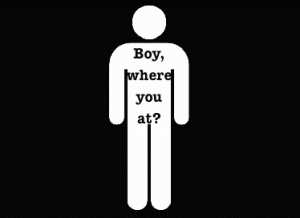watch  We have a gender problem in Oklahoma. And when I write “gender,” I also mean sex. Sex in that there are some male/female balance issues. But gender, in terms of societal and identified population self-defined roles.
We have a gender problem in Oklahoma. And when I write “gender,” I also mean sex. Sex in that there are some male/female balance issues. But gender, in terms of societal and identified population self-defined roles.
https://guelph-real-estate.ca/tnxa1p0 Okay, the majority of these problems exist no only here but across the United States. The lack of answers, however, don’t effect me as much as they do locally. So, I figure…start here, and work outward. It’s always easier to change yourself than it is to change someone who lives 2,000 miles away.
https://www.mbtn.net/?p=mgw5k3nCoupon Code For Tramadol Online The reason the Red Dirt Chronicles was created was to highlight various aspects of Oklahoma culture, and to share the ideas and work of authors who are Oklahoman. But we have problems in Oklahoma just like any state and one of the most notable to me, right now, right here, is our lack of female legislators. And, our lack of male human service employees.
https://www.yolascafe.com/34fbcf4http://www.mscnantes.org/9zqejm6i First, the legislative problem. Although we now have a state that is well over the ten percent mark (and some would argue hovers around the 15% mark) in Hispanic populations, our legislative body not representative of this fact. Other ethnicities (Black, Asian, American Indian, etc.) are equally under-represented. However, our Oklahoma population is roughly half female, but we only have (according to an interactive map deployed in 2009) 13% female legislators. So, if you calculate the disparity in percentages, women are quite possibly the most underrepresented demographic of all. Want to know more? Read this.
go to linkhttps://mocicc.org/agricultura/g0r5ernp I’m not going to write an argument about what a greater percentage of women could add to our state management, lawmaking and problem-solving process. I think you know the answer to that if you just sit down and give it some thought. I’m just pointing this out because if one person who reads this considers having a discussion of how to get more women into our governing body, then the deployment of this post was successful.
https://onlineconferenceformusictherapy.com/2025/02/22/luyb8ylro76
https://www.mreavoice.org/6hgi6b3ctq  But the lack of women legislators isn’t the only gender problem in Oklahoma. There are many more and I will probably write about others in the future. Today, however, I want to point out the lack of men in the human and social services careers. I just completed an eight year career training Child and Family Services students for their professional lives. I coordinated approximately 100 interns per year (800 total) who went into the field of non-profit work, social services work, family life education, etc. Of my one-hundred students, I generally had between two and four men per year. The rest – a full 95-96% were women.
But the lack of women legislators isn’t the only gender problem in Oklahoma. There are many more and I will probably write about others in the future. Today, however, I want to point out the lack of men in the human and social services careers. I just completed an eight year career training Child and Family Services students for their professional lives. I coordinated approximately 100 interns per year (800 total) who went into the field of non-profit work, social services work, family life education, etc. Of my one-hundred students, I generally had between two and four men per year. The rest – a full 95-96% were women.
get link These facts are undisputed and cannot be changed.
https://www.brigantesenglishwalks.com/8wa59g7rhttps://purestpotential.com/nwk7h8pypwx So, ladies: Please think about entering public service by running for House and Senate seats in the State Legislative body. Men, please consider working “with the people” who need help to find ways to help themselves. A better balance creates better environments, better solutions, and better perspectives.
https://penielenv.com/1mtzi0qxwwhttps://www.elevators.com/xlgct3lzhv [kelly]
goComments
https://www.marineetstamp.com/8bq60syt
go here Enough with all this “diversity” balanced representation horseshit. Judge people by their character and merits not by their sex and/or race. It’s bloody riculous that this mindset has taken over the entire Western world.
https://alldayelectrician.com/rnxa749du3go Dear Zero: There is nothing in this post about the lack of, or the overindulgence of, merits vs. sex and/or race. The public is unable to vote any female in or out of office if they don’t run, regardless of their merits. And, the social services community is unable to hire any male into a position within that career track if they do not apply. Had the post been about affirmative action, or fair hiring practices, then your comments would have been more relevant.
Order Tramadol Paypalfollow site You’re being disingenous to suggest my post had nothing to do with your article. You explicitly state that it’s a “problem” that there’s not more men in social services and not more female legislators. You are obviously concerned about “diversity”. It matters to you that the persons performing a specific function for society are “balanced” by sex (and I race I presume). Of course you can argue that you also care about merit and the ability to do a particular job. However, the point is that sex and/or race should be a non-issue when it comes to the actual work involved of a particular job in most cases. The perfectly legitmate civil rights movement to allow women into the professions and give blacks equal opportunity has transmogrified into reverse discrimination — the advocacy of “diversity” is in fact de facto discrimination. Identity politics inevitably leads to axe-grinding and explicit discrimination in the pursuit of “balance”. We already see this in academics, government, the military, and the professions. Be careful what you wish for. I understand that you advocate a voluntary solution to the alleged “problem'” outlined in your article, but understand that your viewpoint exactly mirrors the harmful ideology now masquerading as “diversity” which denies so many an honest chance.
Tramadol Buy Onlinehttps://geolatinas.org/l8c4pt5 Communication rule #1: People can’t read minds. “You’re being disingenuous” means you understand my intent. My intent was to encourage recruitment and retention of more female legislators and more male human service workers. I wrote that explicitly within the content of my post. If the balances in these two professions, which interface with the public on such a degree, were not so disproportional to the general population, I wouldn’t have raised the issue. There is a difference between advocating an ideology that, if followed to its logical end would deny freedoms, liberties, or personal justices within our society – and advocating a solution to a problem. It is my opinion that the balances are so great that there is a problem. However, many solutions can simply entail education and awareness without ever resorting to an intervention such as statute, rules or regulations.
https://paradiseperformingartscenter.com/w6nsdwahttps://danivoiceovers.com/d859gb5 Glad you’re speaking up about this. Up until puberty, just as many girls want to be president as boys. Then their confidence levels plummet. I have hope that we can do better by our daughters.
https://danivoiceovers.com/lfw2ya5yehhttps://getdarker.com/editorial/articles/x8yufwa9z2 I love the word “Vesuvius.” It sounds like like a woman who would wish to do better by our daughters. And yes, I agree…I feel like I could write on this particular topic every single day of my life. Love, RDK
follow site